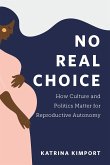Reproductive technology allows us to test embryos' genes before deciding whether to transfer them to a woman's uterus. Embryo selection raises many ethical questions but is virtually unregulated in the United States. This comprehensive study considers the ethical, medical, political, and economic aspects of developing appropriate regulation.
"Bayefsky and Jennings have written an exceptionally smart and thorough analysis of the ethics, politics, and economics of prenatal genetic testing. A must-read for anyone who cares about the future of reproductive technologies and parenthood." - Thomas H. Murray, President Emeritus and Senior Research Scholar of the Hastings Center, USA
'Women undergoing in vitro fertilization can use preimplantation genetic diagnosis to select among their available embryos in order to implant only those that possess, or lack, certain genetic traits. Bayefsky and Jennings have produced an invaluable guide to the ethical, economic and legal questions surrounding this powerful and controversial technique. The book is comprehensive enough, and accessible enough, to be of interest not only to bioethicists and clinicians, but also to students and to women considering in vitro fertilization.' - Stephen R. Latham, JD, PhD, Director, Yale Interdisciplinary Center for Bioethics, USA
'Women undergoing in vitro fertilization can use preimplantation genetic diagnosis to select among their available embryos in order to implant only those that possess, or lack, certain genetic traits. Bayefsky and Jennings have produced an invaluable guide to the ethical, economic and legal questions surrounding this powerful and controversial technique. The book is comprehensive enough, and accessible enough, to be of interest not only to bioethicists and clinicians, but also to students and to women considering in vitro fertilization.' - Stephen R. Latham, JD, PhD, Director, Yale Interdisciplinary Center for Bioethics, USA








